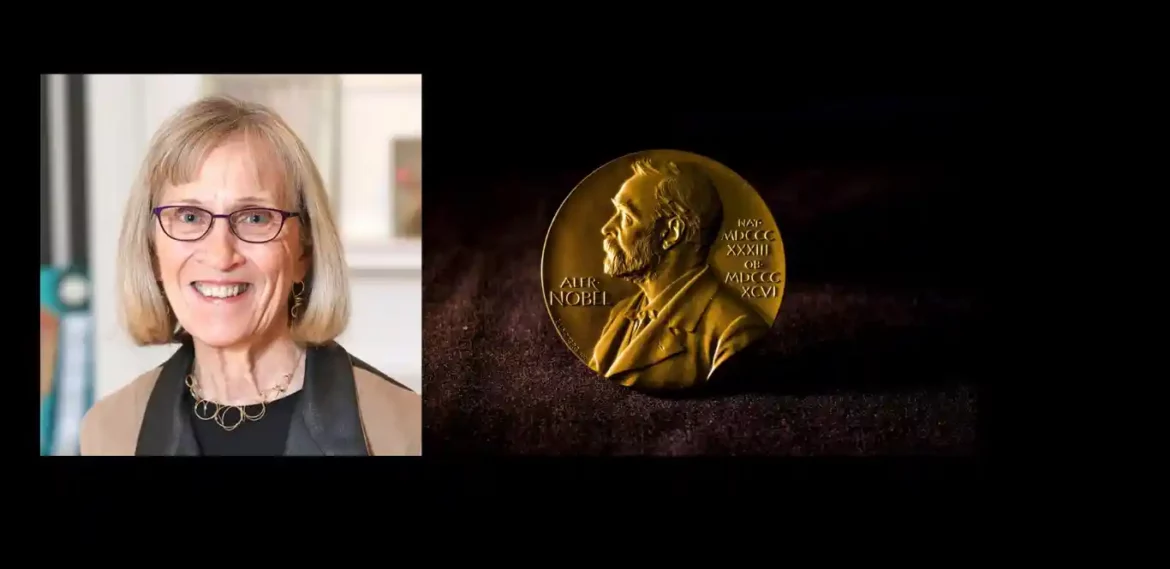The Royal Swedish Academy of Sciences announced on Monday that American economic historian Claudia Golden has won the 2023 Nobel Prize in Economics for her work on examining wage disparities between men and women.
The final installment of this year’s Nobel Prizes is the esteemed award, officially referred to as the Sveriges Riksbank Prize in Economic Sciences in Memory of Alfred Nobel. It carries a generous cash prize of 11 million Swedish kronor, which is equivalent to approximately $1 million.
In the field of economic sciences this year, Claudia Golden emerged victorious by providing extensive insights into women’s earnings and participation in the labor market over the past century,” the awarding institution stated in a statement.
“Her research has shed light on the reasons for changes in labor market dynamics, including the primary sources of remaining gender disparities.”
The Nobel Prize in Economics for this year represents the culmination of Nobel’s crop, which has witnessed awards for the discovery of COVID-19 vaccines, nuclear snapshots, and “quantum dots,” alongside recognition for a Norwegian playwright and an Iranian worker in the field of economics.
Goldin, who became the first woman to work in the Harvard economics department in 1990, is the third woman to win the Nobel Prize in economics.
Hans Elegren, the Secretary-General of the Royal Swedish Academy of Sciences, said, “She was surprised and very happy.”
Golden’s 1990 book, “Understanding the Gender Gap: An Economic History of American Women,” was a highly influential examination of wage disparities.
She has conducted studies on the impact of birth control pills on women’s career choices and marital decisions, as well as the reasons behind the increasing number of women earning bachelor’s degrees after marriage, serving as a social indicator.
Randy Hazalmarsen, a member of the Economic Prize Committee, said, “Claudia Golden’s discovery has had a broad social impact.” “By understanding the problem and calling it by its proper name, we can make further progress.”
A Double Defeat
Despite the prohibition of gender-based wage inequality in most industries worldwide, women still grapple with significant pay discrepancies compared to men.
In the United States, according to an analysis conducted by the Pew Research Center, women earned an average of 82 cents for every dollar earned by men in the preceding year. Meanwhile, in Europe, women earned, on average, 13% less per hour than men in 2021, as reported by the European Commission.
Claudia Golden’s research has illustrated progress in narrowing the gender pay gap over the past few decades. Nevertheless, there is still limited evidence to suggest that it has completely disappeared.
She has delved into issues like “sticky jobs,” a term she coined to describe roles that tend to offer higher pay when individuals work longer hours or have less control over their work schedules. This setup often puts women at a disadvantage when seeking flexible work arrangements to meet their family’s needs.
“The crucial point is that both men and women have borne the consequences,” she pointed out in a blog post for Social Sciences Bites last year. “Men have sacrificed time with their families, while women have frequently sacrificed their careers.”
The Nobel Prize in Economic Sciences, established in accordance with the wishes of dynamite inventor and businessman Alfred Nobel, was originally not part of the primary Nobel Prizes but was separately established by Sweden’s central bank in 1968.
The first Economics Prize was awarded the following year and has since been claimed by numerous influential scholars and educators in the field, including Friedrich August von Hayek, Milton Friedman, and more recently, American economist Paul Krugman, who was recognized for his work on bank regulation and assistance to failed borrowers, potentially averting deeper economic crises akin to the Great Depression of the 1930s.
Similar to most other Nobel Prizes, the majority of Nobel Prizes in Economics have historically been awarded to men. Prior to Claudia Golden, only two women had received this honor – Elinor Ostrom in 2009 and Esther Duflo a decade later.
($1 = 11.0095 Swedish Krona)


